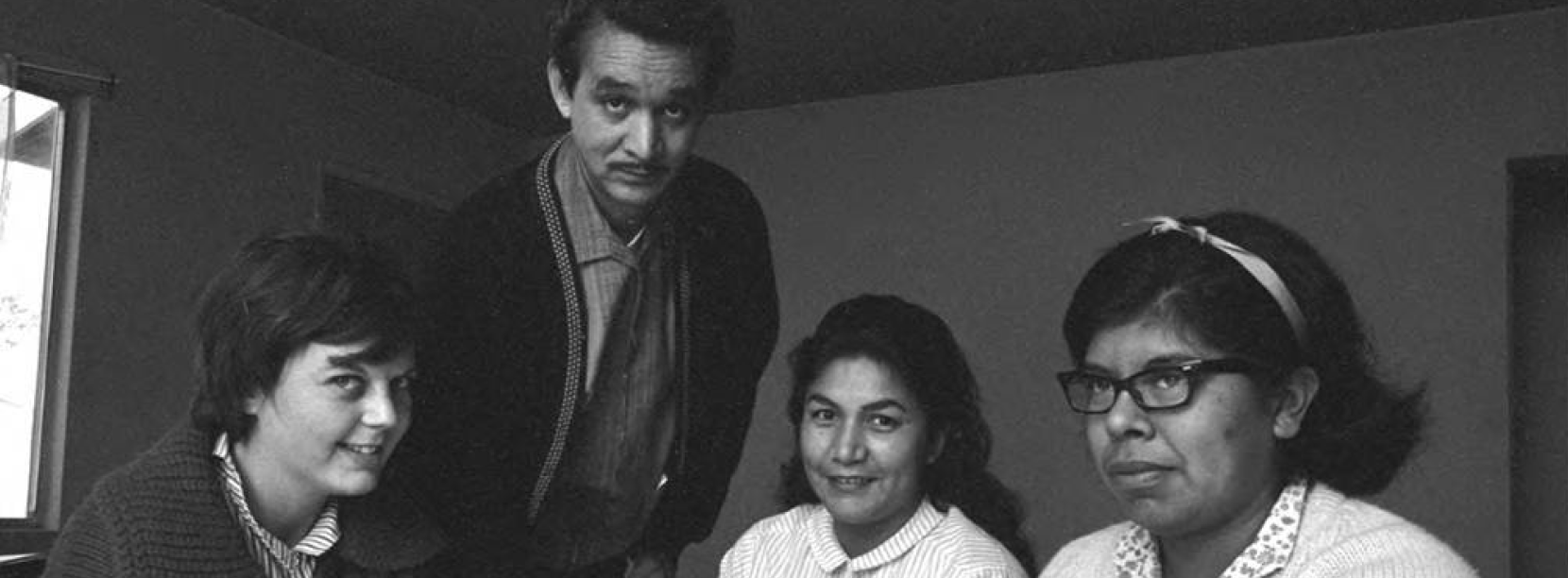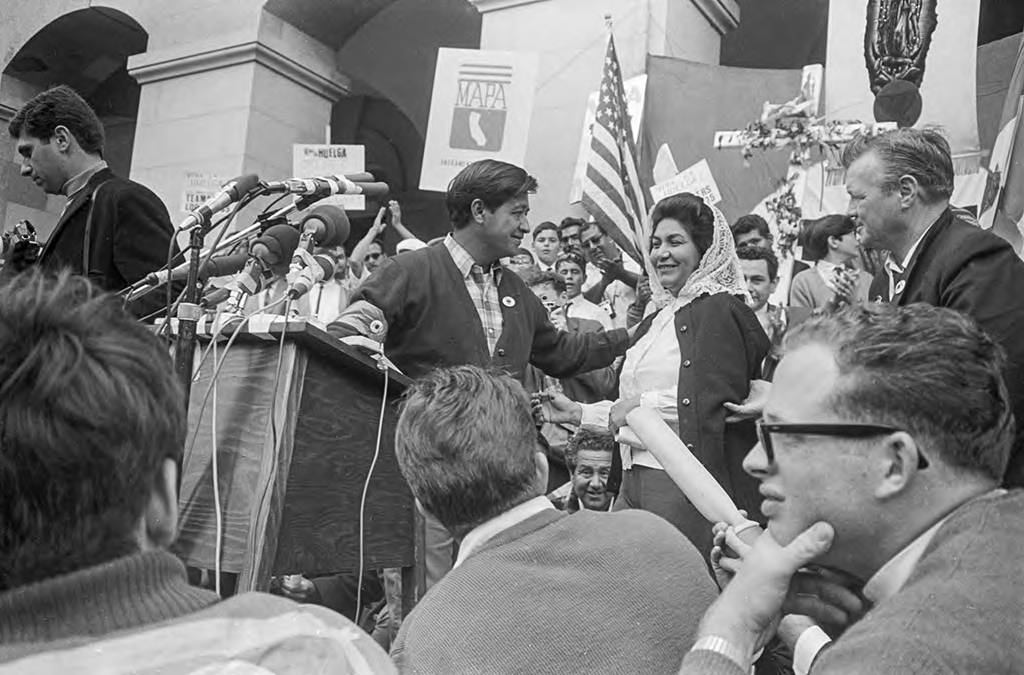Helen Fabela Chávez
Helen Fabela Chávez
Helen Chávez being interviewed by Sam Kushner, Delano, 1967. Photo by Emmon Clarke.
Helen Fabela Chávez was one of the FWA founders. She was born in 1928 in Brawley, California, to Mexican parents that immigrated to the United States in the mass immigration of the 1920s to work as migrant laborers in the San Joaquin Valley. The second of five children, Helen started working in the fields when she was only seven, picking up cotton and grapes together with her mother. Her father died when she was 12, and three years later she and her older sister Teresa quit Delano High School to work full-time and support their mother, their sister Petra, and their four brothers. That same year, 1943, she met Cesar Chávez.
Bonnie Chatfield, Gilbert Padilla, Helen Chavez, and Jessica Govea working at the Farm Worker Service Center, Delano, ca. 1966. Photo by Emmon Clarke.
Helen and César married a few years later in 1948 and moved first into a house in Delano, where they picked strawberries in Greenfield, in Crescent City, and finally in San Jose, where they met Fred Ross, founder of the grassroots Latino civil rights group Community Service Organization (CSO). Cesar started working for the CSO shortly thereafter. During this time Helen kept busy being the primary caretaker of their eight children. When Cesar resigned from the CSO in 1962 and stopped receiving a salary, Helen, 34 years old at the time, went back to working in the fields part-time, picking grapes and assembling cardboard boxes at a local factory.
César Chávez and Helen Chávez standing in front of the State Capitol, Sacramento, 1966
César Chávez and Helen Chávez are standing in front of State Capitol on the last day of the march from Delano to Sacramento. César Chávez briefly addressed the crowd that day. “It is well to remember that in defeat there must be courage, but also that in victory, there must be humility,” Chavez said. He then thanked the organizations offered support and the farmworkers who went on strike. At the end of his talk he personally thanked Helen Chávez. “And I want to introduce to you someone, when we started organizing four years ago, in fact one of the very few people that thought that this could be done, my wife, Helen.”
As historian Frank Bardacke writes in his book Trampling Out the Vintage, “it was back to the fields for Helen, back to the life of a farmworker mom: getting up at 4 a.m. to lay out breakfast and lunch for the kids; carrying Birdy, the youngest, still asleep, over to his aunt Teresa’s; arriving in the fields by six for a full day of physical labor; going back to Teresa’s to pick up Birdy; returning home to make dinner; cleaning up the kitchen; getting everyone ready for bed.”
Helen Chávez and Ethel Kennedy at the memorial march for César Chávez, Delano, CA, 1993. Photo by John Kouns.
Helen worked in the fields for a year, and after that, she was able to find work full-time as the FWA bookkeeper for $50 a week. Later on, she became an accountant for the union, the administrator for the United Farm Workers (UFW) credit union, and the manager of some of its social service projects. She was the center of the union’s financial operations.
Tom & Ethel Bradley Center
California State University, Northridge
18111 Nordhoff Street, Northridge, CA 91330
Phone: (818) 677-1200 / Contact Us



